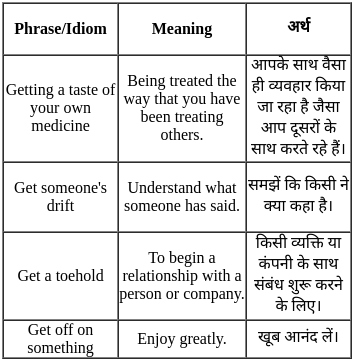BPSC AE Civil Paper 1 (General English) Mock Test - 2 - Civil Engineering (CE) MCQ
30 Questions MCQ Test - BPSC AE Civil Paper 1 (General English) Mock Test - 2
Select the most appropriate synonym of the given word.
Fragile
Fill in the blank with the appropriate preposition:
He is absorbed ______ studies.
Select the most appropriate meaning of the given idiom
An axe to grind
Select the option that best expresses the meaning of the idiom or phrase given below.
Out on a limb
Select the option that can be used as a one-word substitute for the given group of words.
The killing of a king
Identify the segment in the sentence which contains a grammatical error.
The given sentence is divided into three segments. Select the option that has the segment with a grammatical error. If there is no error, select 'no error' as your answer.
The students / will leaving / the school campus in no time.
Improve the underlined part of the sentence. Choose 'No improvement' as an answer if the sentence is grammatically correct.
It's important for him to not forget his roots despite his fame.
Improve the underlined part of the sentence. Choose 'No improvement' as an answer if the sentence is grammatically correct.
"The doctor advised me to take the medication three time a day."Improve the underlined part of the sentence. Choose 'No improvement' as an answer if the sentence is grammatically correct.
"The board has a couple of key issues it has to address to."Select the most appropriate ANTONYM of the given word.
Alert
Fill in the blank with the appropriate preposition:
We study English ______ him.
Direction: Fill in the blanks with the correct article:
Pandas mainly eat ___ bamboo.
Direction: Select the correct degree of comparison to filling in the blank.
It was wonderful to watch my children run _______ to my car.
In the following question, out of the given four alternatives, select the alternative which best expresses the meaning of the Idiom/Phrase.
Break sweat
Choose the word that can substitute the given group of words.
Travelling from place to place
Select the most appropriate 'one word' for the expression given below.
A professional rider in horse race.
The following sentence has been split into four segments. Identify the segment that contains a grammatical error.
I am give / a speech on / emerging economic dynamics / in the program.
The following sentence has been split into four segments. Identify the segment that contains a grammatical error.
I visit my school / once a year / to meeting / my former teachers.
The following sentence has been divided into parts. One of them may contain an error. Select the part that contains the error from the given options. If you don’t find any error, mark ‘No error’ as your answer.
He is faster enough / to defeat / the current record holder.
Improve the underlined part of the sentence. Choose 'No improvement' as an answer if the sentence is grammatically correct.
"Sophie is a much more better runner than her brother."Find the synonyms for the given word.
Choose the correct synonym (word with similar meaning) of the head word from the four options given and mark the right option.
Cajole
Direction: Choose the word which is most nearly the SAME in meaning as the word printed in Bold.
PROMULGATED
Direction: Choose the response, whichever is the most appropriate expression and mark your response in your answer sheet accordingly.
Turn topsy-turvy
In the given sentence, identify the segment which contains a grammatical error.
As soon as the bus driver was seeing the child crossing the road, he applied the brakes.
Direction: The following sentence has been divided into parts. One of them contains an error. Select the part that contains the error from the given options.
The Committee agreed / that small businesses / has been adversely affected / by COVID19.
Improve the underlined part of the sentence. Choose 'No improvement' as an answer if the sentence is grammatically correct.
She could hardly not believe how fast the time had flown.
Improve the underlined part of the sentence. Choose 'No improvement' as an answer if the sentence is grammatically correct.
"The teacher explained the concept so clearly that everyone could understand it good."Select the suitable determiner from the given options to complete the given sentence:
Have you watched _____of the James Bond movies?















